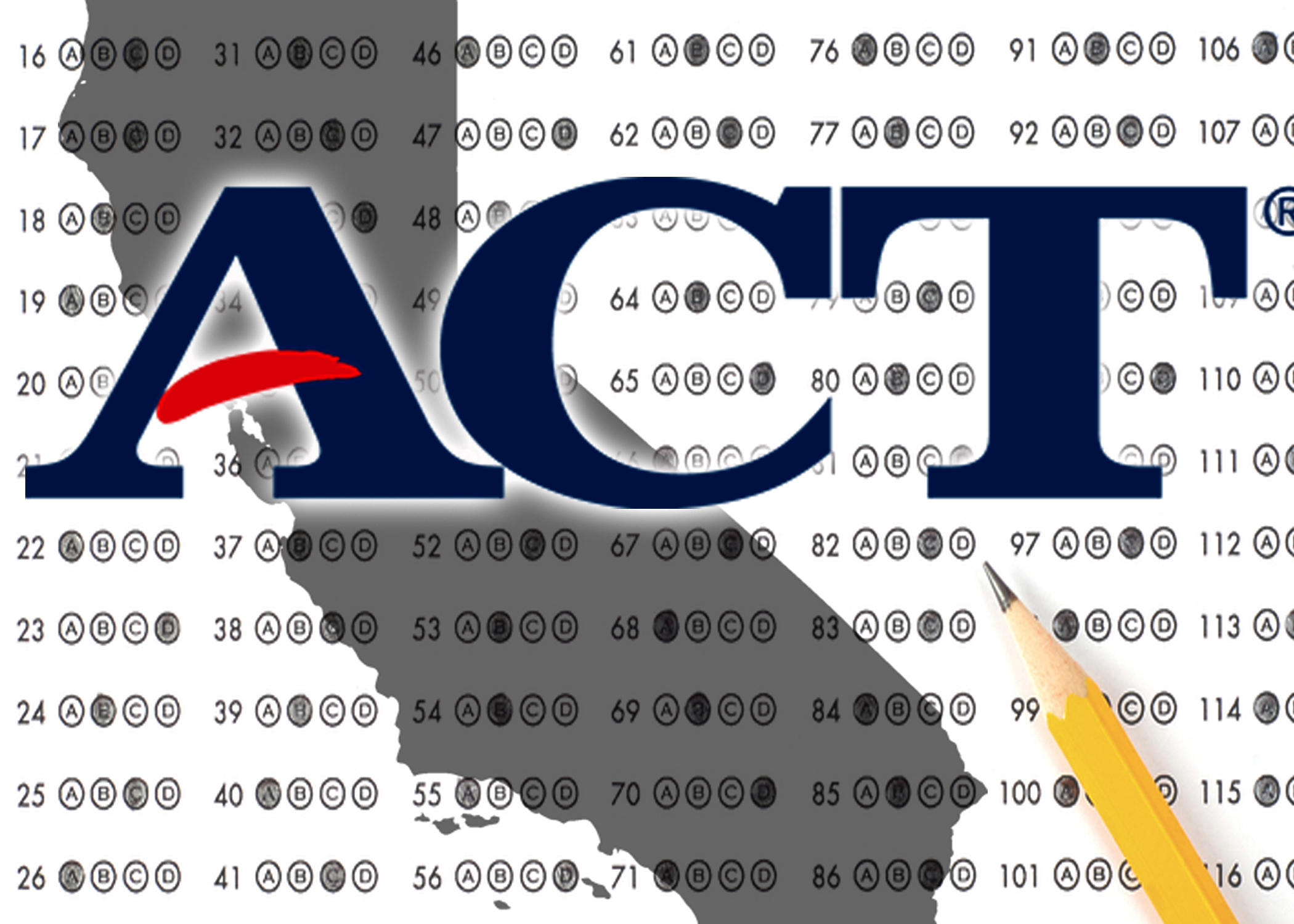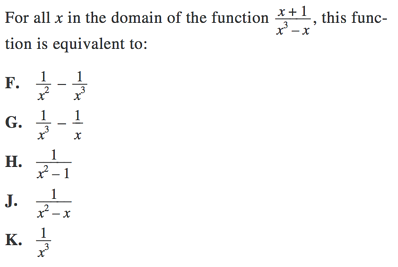
The internet is flooded with ACT test tips and if you’re still here, we see you are looking for something more functional and effective! Through this blog, we bring you the most effective test-taking tips and strategies and a comprehensive read on ACT test prep strategy.
What is the ACT test and why is it even important?
Before diving into the ACT test tips, let’s first understand the ACT exam – the very basics of it. The ACT is a standardized test used for college admissions in the United States. It is currently administered by ACT, a nonprofit organization, and covers four academic skill areas: English, mathematics, reading, and scientific reasoning. It also offers a direct writing test which you may or may not opt for depending on your goals and inclination.

Across the United States, several colleges and universities use ACT scores for admissions, placements, and scholarship decisions. This is exactly why millions of graduating students take to the internet to look for the best ACT test-taking strategy!
The ACT test format and other important details
Before you devise an ACT test-taking strategy, it is important to become abreast of the latest testing format, dates, etc. Here’s a quick snapshot of the ACT test:
- The ACT is a computer and paper-based test
- It is conducted 7 times a year in the US and Canada and 5 times in other countries, every year
- The mandatory sections of the ACT are essentially four multiple-choice subject tests in English, mathematics, reading, and science reasoning
- Subject test scores range from 1 to 36; with all scores always being in integers
- Each correct answer is worth 1 raw point and there is NO negative marking for wrong answers
- Duration for each section is as follows:
- English: 45 mins
- Math: 60 mins
- Reading: 35 mins
- Scientific Reasoning: 35 mins
- Writing Section: 40 mins
- You can find the nearest ACT test center location here
We will cover each of the sections and a test-taking strategy for each in detail in this article. But first, let’s catch up on some core, general ACT test-taking tips that are applicable to all the sections alike.
The General ACT Test-taking Tips for ALL Sections
We have handpicked the 5 top test-taking tips for ACT that are important for the test overall, regardless of the sections. These are based on our extensive experience with students and tutors who shared their insights on the ACT test itself and some of the best ACT test tips:
1. Make use of ALL possible free ACT prep resources
There are tonnes of free practice material and mock tests available for the ACT. One of the first steps in devising your ACT test-taking strategy is to enlist the resources that you intend to use for practice. Most ACT prep websites offer at least one free mock ACT test upon signing up. Make use of ALL of those mock tests before buying any test plan.
2. Practice SMART!
While practice is the key step in making your ACT test-taking strategy work, not all forms of practice are really useful. Understand what it takes to practice smart, do this:
- Practice under test-like conditions whenever possible (e.g. timed testing, ensuring a distraction-free environment for mock testing, etc.)
- While practicing, notice your general pace in each subject. Build a pace slowly but steadily that you are comfortable with and that helps you answer most number of questions accurately
- Pick your practice materials carefully. Begin with the free resources (included simulated tests) provided on the ACT official website. Then, slowly expand your practice scope. Here are 3 books (all available on Amazon.com) that we highly recommend:
You can also find cheaper online-only versions of many such books on websites like Scribd. Here is one such example.
3. Make and test a time management plan beforehand
A key part of the ACT test-taking strategy is to have unbeatable time management. Most students end up messing with the allotted time because they get hung up on one question. Since there is no negative marking, don’t let a difficult question derail you. Make an educated or even a completely random guess and move on without wasting time.

It’s a good practice to test at least 2-3 different time management strategies beforehand to see what works best for you. Then, stick to it on the test day.
Bonus tip: Always save some time to review your answer choices and to neaten up the exam papers and redo any partially shaded bubbles. Remember that the machine will end up NOT reading the half-shaded or lightly-shaded bubbles.
4. Ace the art of answering by elimination
It’s a criminal offense to leave questions unanswered! Use the method of focussing on answer choices that seem most obviously flawed and eliminate them. Always try to eliminate at least 2 answer choices if not more. Even if you end up with two equally probable-looking choices, in the end, your probability of getting a correct guess still jumps to 50%!
5. Get yourself customized professional help – it can do wonders!
While there are several ACT prep courses guaranteeing a 2 and 4 and even a 6 point increase in ACT scores, don’t fall for them! Getting yourself a private tutor who can work with you on your individual goals by leveraging your learning style can do wonders.
A private ACT tutor can help you:
- Devise a customized study plan
- Get specialized instruction for weaker areas and weaker subjects
- Manage general test-related anxiety and stress
- Monitor your progress and provide actionable feedback
- Analyze practice tests more in-depth and use those insights to create a highly functional ACT test-taking strategy
- Study according to your personal time and style preferences

Did you know? According to usnews.com, a working paper from July 2018 by the ACT suggests that private tutors can help students improve their scores.
Now, let’s take a closer look at each of the sections within the ACT test. Apart from a solid overall ACT test-taking strategy, a subject-level strategy is also essential for success. The individual scores in each section add up to that coveted overall score. Leave no weak section unattended and attack each one of them with a pre-tested game plan.
ACT Test Tips for English
The first section in the ACT test is the 45-minute English section that covers usage/mechanics, sentence structure, and rhetorical skills. The 75-question test consists of five passages. You would be required to correct the underlined portions in each question. Of all the subsections, rhetorical skills are the trickiest! They often test the various rhetorical skills like style (clarity and brevity), strategy, transitions, and sentence organization.
Also Read: 6 Tips to Score a Perfect 36 on the ACT English Exam
To ace the ACT English section, do this:
- Ace the general grammar rules first. Dig out your middle school grammar books to begin with and start with revising the basics viz:
- subject-verb agreement
- pronoun agreement
- adjectives and adverbs
- comparisons and superlatives
- punctuation
- conjunctions
- Make yourself several grammar flashcards that you can skim through while traveling, idling, etc. You can also download free flashcards like the ones here and print them. Remember that soft copies are of little avail, the hard copies are what you’ll end up really paying heed to
- Remember the 4 Cs, everything should be in complete sentences, clear, concise, and consistent. Use these to eliminate answer choices whenever you don’t have a clear pick
- The NO CHANGE answer choice is an answer choice for a reason and at least 15-20% of questions have it as the right pick. Don’t overlook it and force a correction. This is a cardinal mistake many students make especially in the English section!
ACT Test Tips for Reading
Unlike the other three sections, the reading section on the ACT has no standard curriculum. Only a lot of question practice and general reading can help you identify patterns, common idioms, phrases, etc. To improve your score on the actual test day, do the following:
- Take your pick: skim through the paragraphs and start with the one that has a topic you find the easiest and work your way up
- Read smartly (active reading during the test): skim through the questions first before reading the passage. This way you’ll know some of the keywords to notice more carefully and you won’t waste time on other details
- Tackle unknown words: try to decipher the meanings of words in the context of the sentence. Read the previous and the next sentence to understand the overall mood and reference. Above all, don’t get intimidated by a word you are unaware of, just keep moving forward
Also read: Tips to score a perfect 36 on the ACT English section
ACT Test Tips for Math
When it comes to ACT test tips for math, we really want to start with a disclaimer that there is no one solution to math. Every student has their own way with math. Some easily get answers right by backsolving i.e. simply plugging answer choices into the questions. Some need to work it out with all the steps and formulae. Always stick to whatever strategy works best for you and never go by the book alone especially with math.
To supplement your prep, here are the top 3 ACT test tips for math based on real feedback from tutors and ACT aspirants:
- Pick numbers for solving algebra-led problem statements. For example, in the question below, you could pick any value for ‘x’ (except for 0, of course) and see which answer choice gives you the same value for both sides of the equation
 Ace the basics to save time. Brush up the following to score easily and fast on the algebra and geometry questions:
Ace the basics to save time. Brush up the following to score easily and fast on the algebra and geometry questions:-
- The 30-60-90 and 45-45-90 rules for triangles
- The common Pythagorean triplets like 3:4:5, 5:12:13, etc. and their multiples
- Algebraic identities
- Lastly, don’t make the silly mistake of copying numbers incorrectly while attempting questions. This type of silly mistake alone causes several students to miss out on precious raw points! Practice is the key to avoid making this mistake on the test day. After taking a mock ACT test, always analyze your math silly mistakes carefully and note the repetition frequency and pattern
Bonus tip: The ACT test allows the use of a calculator. Check here whether the calculator model you intend to use on the test day is allowed or not.
ACT Test Tips for Scientific Reasoning
The ACT science section consists of 40 multiple choice questions about 7 science passages across biology, chemistry, physics, and streams such as astronomy, geology, and meteorology. The best ACT test tips for scientific reasoning are actually very simple and intuitive:
- Familiarize yourself with all common charts used to depict data. For example, you should know how to calculate values from percentages and vice versa from a pie chart
- Practice enough to be able to identify trends and patterns in data to make predictions or to extrapolate
- The third tip is again similar to the one for other sections – skim through and start with whichever passage feels the easiest. Whenever stumped, just move on and tackle the rest of the section
ACT Test Tips for the Writing Section
This section is optional and only about 25-27 colleges require ACT scores along with the writing section. You can see the complete list of colleges requiring it here.
In the ACT writing section, you’ll be asked to write an essay in which you take some sort of position on the prompt. You will also be required to assess the three perspectives provided – for, against, and the middle. To be able to write a compelling ACT essay, always follow this approach:
- Take time with understanding the prompt: try to analyze what exactly does the prompt require from you, what are the open questions, any important facts, etc.
- Use the standard essay outline to document your first thoughts: even while planning your essay in rough, make sure to fill in points within this outline:
- Introduction
- Your position (for, against, or middle)
- Start with the core issue raised in the prompt
- Paragraph 1
- Discuss the perspective contrary to your chosen position
- Evaluate the facts around the contrary position
- Analyze the contrary position thoroughly
- Paragraph 2
- Present your position/viewpoint
- Substantiate it with facts
- Use examples and re-state your position once again before concluding it
- Conclusion
- A brief overview of the discussion in the preceding two paragraphs
- Final thought and stance
- Introduction
Bonus tip: always spare some minutes in the end to proofread your essay. Spelling errors due to oversight, incoherent ordering or facts/ sentences, etc. can all be then corrected which would otherwise levy a bad impression if left as is.
3 ACT Anxiety Handling Tips You Need to Know
- Keep your metabolism in check: yes, your metabolism plays a big role in controlling or aggravating your anxiety levels. Sleep well, eat your breakfast for good energy levels throughout the day, and deep breathe for at least 15 minutes a day. And of course, cut down on chips and coffee and dig into your salad bowls more often! Consuming a piece of dark chocolate can also help with anxiety and in keeping the mood in a better state. Engaging in physical activity is also a great way to combat anxiety.
Also read: Exam Anxiety – How to be Better Prepared
- Familiarize yourself with the ACT situation: take a stroll around the test center and take lots of simulated, timed mock tests. Familiarize yourself with the real ACT like situation as much as you can to remove the fear of the unknown
- Notice and manage your social interactions: Cut clear of anyone who says things “oh, ACT is tough, all the best!” or “one of my friends practiced hard but didn’t do well in the ACT, the test is unpredictable”. Remember, you DO NOT need any unsolicited advice or judgment about the ACT test. Trust your ACT test-taking strategy and be your own buddy until the test is over. Stay away from all negative talk as much as possible and stay close to those who cheer for you unconditionally
The Final Word
We hope this article will be your best buddy in reminding you that your own confidence is the key. While we have covered a lot of ACT test tips in detail, there is always room for improvement. And, it doesn’t end here, we are also here to help you take the next step in the ACT prep journey.
Interested in exploring a private ACT tutor to get your target ACT score in this very attempt? Don’t spend another minute browsing through the several generic and yet expensive self-directed programs, get the right, personalized one-on-one guidance and professional expertise. Visit Talentnook, and connect with hundreds of professional tutors.
Related Readings
1. How to Get Your ACT Test Prep Right – The Complete Guide.
2. 6 Tips to Score a Perfect 36 on the ACT English Exam